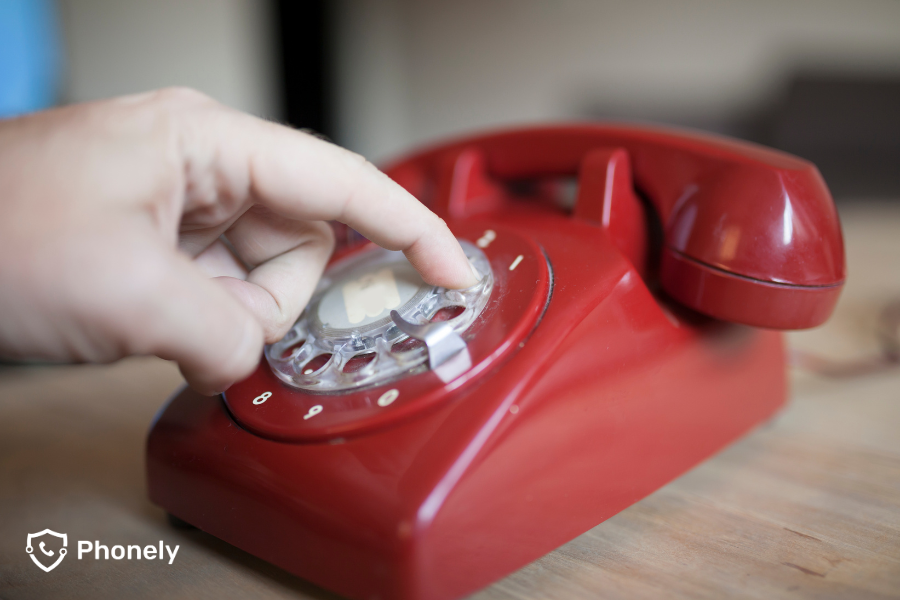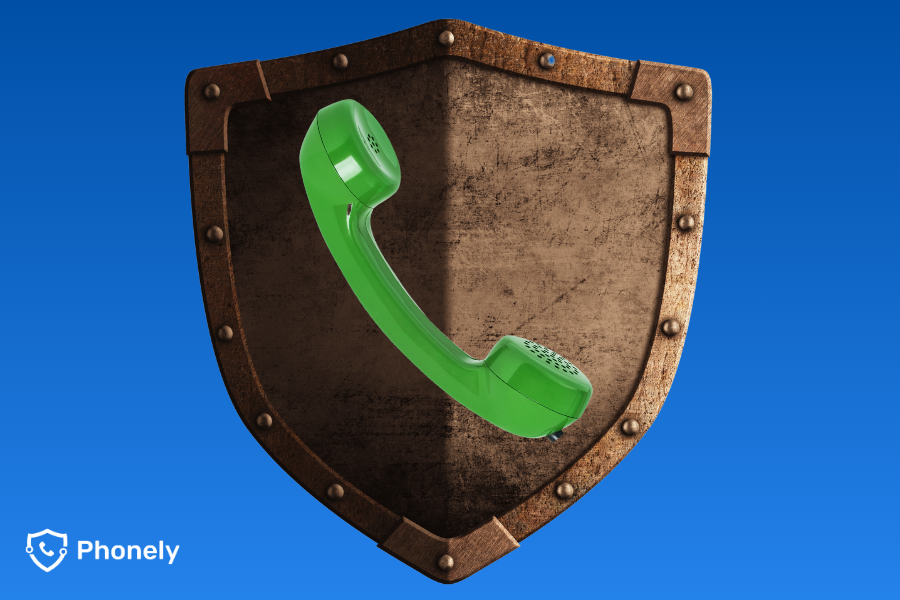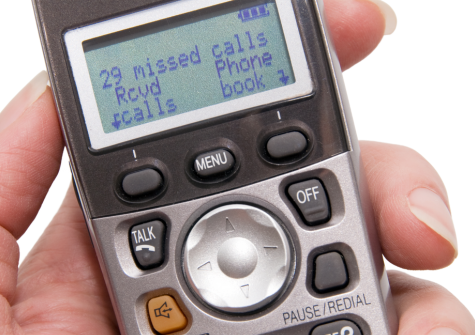Have you ever glanced at your phone to see a missed phone call from an unknown number, only to hesitate about calling back? You’re not alone. Missed call scams are a cunning tactic fraudsters use to exploit this uncertainty, tricking people into returning calls to premium-rate numbers that rack up hefty charges.
But fear not! This comprehensive guide will equip you with the knowledge to identify missed call scams and protect yourself from becoming a victim. We’ll delve into the world of these deceptive practices, explore the latest tricks scammers use, and reveal how you can protect yourself moving forward.

What are missed call scams? How do they work?
Missed call scams occur when scammers leave a missed call on your phone from a number you may or may not recognise. They prey on people’s natural inclination to return missed calls, especially those from seemingly local or familiar numbers. Here’s how it unfolds:
The bait
You receive a missed call from an unfamiliar number. It might display a local area code or even appear to be from a friend’s number through spoofing (more on that later).
The hook
Curiosity sets in. You wonder who it could be and why they called. Is it important? Should you call them back? If so, when? Now? Later? You just can’t stop thinking about it!
The sting
You return the call, unknowingly connecting to a premium-rate number. The longer you stay on the line, the more money the scammers steal. These calls can be costly, racking up charges of hundreds of pounds.
In some variations, scammers might leave a brief voicemail urging you to call back for an urgent message or a missed opportunity. Don’t believe it, it’s all a rouse! These are simply tactics to heighten your curiosity and pressure you into returning the call.

Signs of a missed call scam
Whether you use a mobile device, a home VoIP phone or are still using your trusty copper-wire-based landline, there are a few red flags to look out for. After all, not all missed calls are created equally.
International area codes:
If you receive missed calls from unknown international numbers, for example, +267, +224, or +592 it’s most likely a scam.
Unknown area codes:
If you notice a missed call from a number with an unfamiliar area code always be cautious. Scammers often use non-geographic numbers such as 084, 087, 090, 091 or 118 to lure you into calling them back.
Quick calls:
Scammers usually let the phone ring just once or twice, ensuring you see you’ve missed a call but don’t have time to answer. This piques your curiosity and makes you more likely to call back.
Numbers resembling mobiles:
Scammers sometimes use numbers that look like regular mobile numbers (e.g., starting with 070 or 076) but are actually premium-rate numbers with hidden costs.

The nasty extras: Spoofing and phishing
Scammers are constantly evolving their tactics. Here are two additional tricks to be aware of:
What is number spoofing?
This involves manipulating Caller ID to make it seem like the call is coming from a familiar number, such as a friend, family member, or even a local business. This adds a layer of legitimacy to the scam and increases the chance you’ll return the call.
What is phishing?
After you return a missed call scam, the scammer might try to engage you in conversation to obtain personal information like your bank details or login credentials. Be cautious of any unsolicited calls requesting personal information.
Implications of returning a scam call
Returning a call to a scam number can have several negative outcomes:
- High charges: Premium-rate numbers can lead to exorbitant charges on your phone bill to the tune of hundreds of pounds.
- Personal information risk: Scammers may use these calls to phish for personal information.
- Continued targeting: Once you call back, scammers may target you more frequently, knowing you are responsive.

How to protect yourself from missed call scams: Fight back!
Now that you’re armed with the knowledge to identify missed call scams, here are some suggestions of practical steps you can take to protect yourself:
- Just don’t call back: Avoid returning calls to unknown or suspicious numbers. If it’s important and legitimate the caller will leave a voicemail or contact you again or through another method.
- Verify the number: If you’re unsure about a missed call number, Use online tools like the Who Called Me service to check the legitimacy of missed calls. This free resource allows you to search for phone numbers and see if other users have reported them as scams.
- Enable call blocking: But before you do, check to see how often your provider updates their data. Call-blocking devices may not work with digital voice. To truly be protected you will need an auto-call blocker that blocks numbers in real-time to keep ahead of the quick number changes that digital numbers allow for.
Phonely: Your shield against phone call scams
At Phonely, we understand the frustration and financial risk posed by missed call scams. That’s why we offer a comprehensive suite of security features designed to empower you and keep your phone line safe. Here’s how Phonely goes above and beyond for their customers:
- Real-time automatic call blocking: Unlike traditional systems that update databases monthly via 3rd parties, Phonely uses real-time call blocking. Our system continuously monitors and updates its database of known scam numbers, ensuring you’re protected from the latest threats. This is FREE on any Phonely plan.
- Community-Driven Protection: Phonely’s Who Called Me service allows people to report scam numbers. This collective intelligence helps us identify emerging scams and block them quickly, providing a powerful layer of FREE protection for all our customers.
- Advanced CallGuard technology: This feature goes beyond simple call blocking. For example, before a call connects to you, the Anti-fraud introduction informs callers you are protected & calls are recorded & monitored.
- Peace of mind: With Phonely, you can rest assured that your phone line is shielded from missed call scams. Our advanced security features work tirelessly to protect you, allowing you to focus on what matters most.

Additional tips for staying safe
There are several other measures, some free, that can further protect you from phone scams:
- Register with the Telephone Preference Service (TPS): This free service helps reduce unwanted calls. However, it only blocks legitimate businesses from sales calls.
- Report scam numbers to Ofcom or FAS: Ofcom is working to reduce nuisance calls and can take action against offenders. FAS (Friends Against Scams) helps in the fight against any type of scam or fraud.
- Use your phone’s built-in features: Most modern phones have options to block or report suspicious numbers. Although it has its holes, it’s a simple way to add a light layer of protection.
- Be cautious of urgency: Scammers often use urgency as a tactic to pressure you into action. If a caller insists you call back immediately, it’s a warning sign.
- Never share personal information: Avoid sharing any personal details with unknown callers, especially if they ask for financial information or login credentials.
- Report scams: If you believe you’ve been targeted by a missed call scam, report it to the relevant authorities and share your experience with others to help raise awareness.
By following these tips and using Phonely’s digital voice and CallGuard, you can effectively protect yourself from missed call scams and enjoy peace of mind.
FAQs:
- Can someone hack my bank account with my phone number? While direct hacking through a phone call is rare, scammers can use information obtained through missed call scams to target you with phishing attempts or other fraudulent activities.
- Can I stop my number from being spoofed? Unfortunately, there’s no foolproof way to prevent your number from being spoofed. However, reporting such incidents to your phone provider and using services like Phonely’s CallGuard can help reduce the risk.
- How can I find out who this phone number belongs to? Phonely’s Who Called Me service is a valuable tool for identifying unknown numbers and checking for reported scams. A simple Google can also be useful.
- What happens if I answer a spam call and say hello? Answering a spam call and engaging with the caller can increase your chances of falling victim to further scams. It’s best to hang up immediately.
- I keep getting random mobile numbers calling me, what can I do? If you think these are scam calls, it is best to report them. With Phonely you can block an unlimited amount of numbers, so you can stop recurring missed calls from numbers you do not know.

UK government efforts to combat missed call scams
The UK government is taking steps to tackle phone scams. Ofcom has introduced measures to block fraudulent numbers and is working with telecom providers to prevent scammers from spoofing legitimate numbers. These initiatives, combined with services like CallGuard, provide better protection than ever before.
Conclusion
Missed call scams are a serious concern, especially for those who are not confident about answering unknown numbers. By understanding the signs and implications of these scams, you can protect yourself. If you want further peace of mind, switching to Phonely will certainly give you that in abundance!
To keep up to date with the latest scams join our Phonely Facebook community page. It’s where members share stories and tips about being safe and offer support to those who need it.
Should you wish to chat with our friendly customer service team about any of our services then you can call the telephone number 0800 112 5000. Or email hello@phonely.co.uk.

Leave a Reply